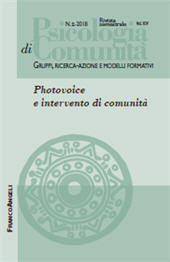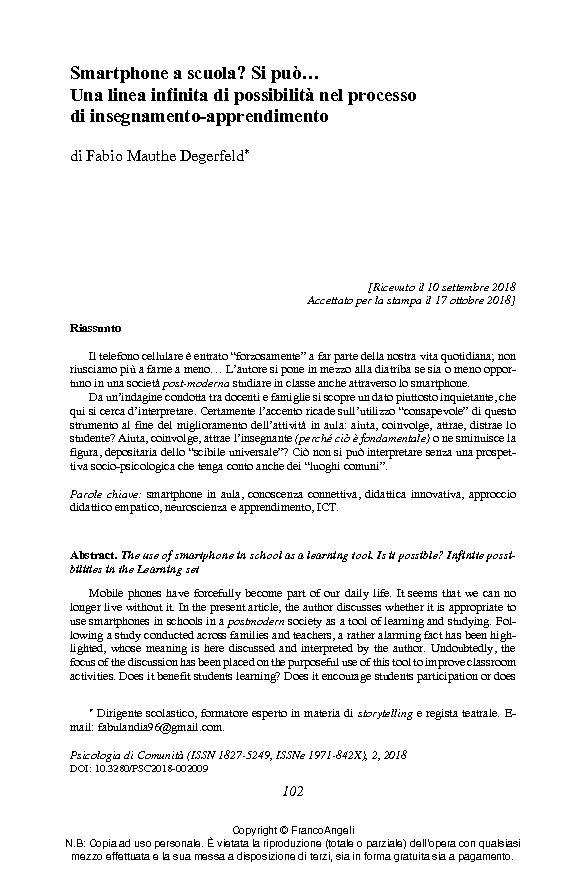Smartphone a scuola? : si può... : una linea infinita di possibilità nel processo di insegnamento-apprendimento
102-111 p.
Il telefono cellulare è entrato "forzosamente" a far parte della nostra vita quotidiana; non riusciamo più a farne a meno. L'autore si pone in mezzo alla diatriba se sia o meno opportuno in una società post-moderna studiare in classe anche attraverso lo smartphone. Da un'indagine condotta tra docenti e famiglie si scopre un dato piuttosto inquietante, che qui si cerca d'interpretare. Certamente l'accento ricade sull'utilizzo "consapevole" di questo strumento al fine del miglioramento dell'attività in aula: aiuta, coinvolge, attrae, distrae lo studente? Aiuta, coinvolge, attrae l'insegnante (perché ciò è fondamentale) o ne sminuisce la figura, depositaria dello "scibile universale"? Ciò non si può interpretare senza una prospettiva socio-psicologica che tenga conto anche dei "luoghi comuni" [Testo dell'editore].
Mobile phones have forcefully become part of our daily life. It seems that we can no longer live without it. In the present article, the author discusses whether it is appropriate to use smartphones in schools in a postmodern society as a tool of learning and studying. Fol-lowing a study conducted across families and teachers, a rather alarming fact has been high-lighted, whose meaning is here discussed and interpreted by the author. Undoubtedly, the focus of the discussion has been placed on the purposeful use of this tool to improve class-room activities. Does it benefit students learning? Does it encourage students participation or does it deflect their attention? More importantly, is it equally as important for teachers, or is this "ever so knowledgeable" technology gradually discrediting teachers professional role? The arguments above cannot be analysed without a socio-psychological perspective, which would also take into account its commonplaces. [Publisher's text].
-
Artikel aus derselben Ausgabe (einzeln erhältlich)
-
Informationen
ISSN: 1971-842X
THEMENBEREICHE
KEYWORDS
- Smartphone in aula, conoscenza connettiva, didattica innovativa, approccio didattico empatico, neuroscienza e apprendimento, ICT.
- Good teaching whit smartphone, smartphone in school, empathic teaching ap-proach, networked knowledge, Information and Communication Technology, ICT.



